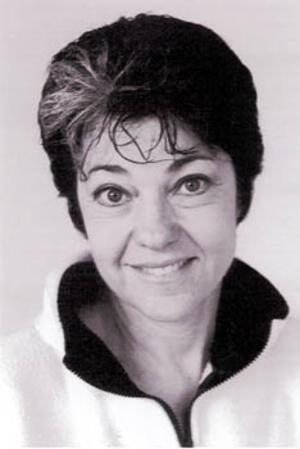Margaret Lazarus
Margaret Lazarus used her talents as an independent filmmaker to bring attention to issues ranging from rape culture to nuclear threat. Deeply interested in the social content of art, Lazarus studied communications and media in a graduate program at Boston University. It was there that she met Renner Wunderlich, her life partner and long-time collaborator. Together they formed an independent film company that would allow them to address issues ranging from rape culture to the nuclear threat without censorship. They produced movies on the women’s health movement, rape culture, images of women in the media, homophobia, and nuclear threat. In 1994, they won an Academy Award for Defending Our Lives, a documentary on battered women serving prison sentences for killing their abusers. In 1999, she produced and directed a series of films on women and violence which was screened at the UN General Assembly. Margaret Lazarus was honored at the 2001 Women Who Dared event in Boston.
Margaret talks about about her family and her childhood; she describes growing up in Queens with two schoolteacher parents. She grew up in a predominantly Jewish neighborhood. Margaret's parents both grew up with limited wealth and had to make their own way in the world. Her parents were each involved with their own causes, which inspired Margaret become an activist. She also briefly discusses her grandmother, who traveled alone from Ukraine to the United States when she was just fourteen. "That," Margaret remarks, "was a woman who dared." Margaret discusses her perception of Judaism. While she is not so religiously involved, she understands Judaism as a way to argue with and question the world around her. To her, Jewish values are inextricably linked with civil rights. Most of her Judaism is cultural, such as cooking Jewish food with her grandmothers. Margaret's interest in film and media began at Vassar College. She was particularly drawn to documentary filmmaking. She began her career in public television but eventually created her own production company with her partner, Renner, so they could freely express their political views. One of the main topics Margaret discusses in the interview is her interest in the representation of women in media, specifically regarding medical issues. She spent a lot of time advocating for the home birth movement and shedding light on the patriarchal structure of the medical industry. She faced a lot of opposition in the project. Margaret moved further into the women's movement, discussing sexual assault, domestic violence, and other issues such as nuclear threats, homophobia, the Vietnam War, and racism. Margaret reflects on the support she felt working with her partner and the overall acknowledgment that their work was making an impact and starting conversations. Finally, she discusses her family and how Jewishness and activism play a role in how she is raising her children.



